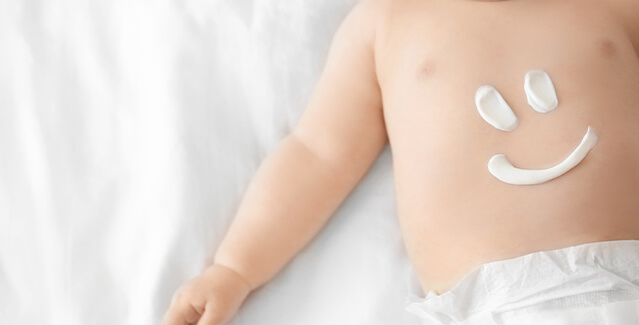
Many parents think that because babies have such soft and smooth skin, they don't need to pay that much attention in tending to their baby's skin. However, because a baby's skin is different from an adult's, they will need special attention and skincare.
Babies have delicate skin that are thinner and more susceptible to chemicals, dyes in clothing and detergents. With such vulnerability, it is important for parents to choose baby skincare products that are free from parabens, mineral oils and manufactured from reliable sources.
With that, here are some tips that will help you protect your baby's skin!
Unlike adults, babies have skin that absorbs and loses moisture quickly. Thus, bathing your baby too frequently can dry out their skin. Try to limit bath time to maximum once a day to keep your baby clean from sweat, saliva, milk and dirt.
During bath time, you may bathe him in lukewarm water for up to 5 minutes but not more to prevent your baby's skin from drying out. Pat dry instead of rubbing.
Giving your little one a massage is important one-on-one time. Touch triggers relaxation, boosts immunity, calms your baby so she sleeps better. If it's your first time, you can follow these simple steps:
- Apply a suitable amount of Cetaphil Baby Daily Lotion with Shea Butter, starting from your baby's legs
- Gently work your way up her legs, lightly squeezing her calves and thighs
- For chest and tummy, place your hands flat against the centre of her body and lightly spread your hands to the sides. With your hands still flat, use your fingertips to stroke outward in small circles
While there's nothing quite like the soft and smooth skin of a baby, it is not uncommon for babies to experience occasional bumps, spots and rashes due to their delicate skin. If you notice fluid-filled bumps, large swathes of weeping or crusted skin, or if your baby has a fever, consult your paediatrician for medical advice.

